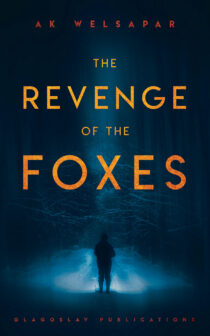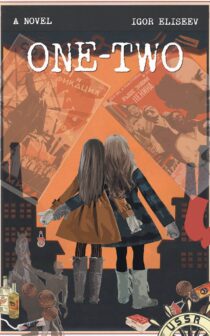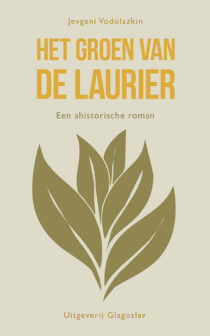Harlequin’s Costume
Price range: €9.95 through €27.99
Author: Leonid Yuzefovich
Translator: Marian Schwartz
2014 Read Russia Prize for Contemporary Fiction
Harlequin’s Costume is the first volume in a series whose main character is based on the real-life Ivan Putilin, the Tsar’s Chief of Police in St. Petersburg from 1866 to 1892. The entire trilogy, Chief Inspector Putilin, appeared as a mini-series on Russian television in 2007. Brilliantly translated by Marian Schwartz, Harlequin’s Costume is now for the first time being published in English.
The year is 1871. Prince von Ahrensburg, Austria’s military attaché to St. Petersburg, has been killed in his own bed. The murder threatens diplomatic consequences for Russia so dire that they could alter the course of history. Leading the investigation into the high-ranking diplomat’s death is Chief Inspector Ivan Putilin, but the Tsar has also called in the notorious Third Department – the much-feared secret police – on the suspicion that the murder is politically motivated. As the clues accumulate, the list of suspects grows longer; there are even rumors of a werewolf at large in the capital. Suspicion falls on the diplomat’s lover and her cuckolded husband, as well as Russian, Polish and Italian revolutionaries, not to mention Turkish spies. True to his maxim that “coincidence and passion are the real conspirators,” Putilin seeks answers inside the diplomatic circus as well, which leads him to struggles with criminals and with the secret police itself. When the mystery is solved, the only person who saw it coming was Putilin.
Harlequin’s Costume is the first volume in a series whose main character is based on the real-life Ivan Putilin, the Tsar’s Chief of Police in St. Petersburg from 1866 to 1892. The entire trilogy, Chief Inspector Putilin, appeared as a mini-series on Russian television in 2007. Brilliantly translated by Marian Schwartz, Harlequin’s Costume is now for the first time being published in English.
Published with the support of the Institute for Literary Translation, Russia.
[real3dflipbook id=’92’]
| Dimensions | N/A |
|---|---|
| Author | Leonid Yuzefovich |
| Pages | 266 pages |
| Publication date | 15th March 2013 |
| Book Format | Hardcover, Paperback, EPUB, Kindle, PDF |
Endorsements and Review Quotes
“Harlequin’s Costume is a comedy of manners as much as a detective story: the mood remains lighthearted throughout and there’s a fair bit of pure comic amusement, in Putilin’s family life and Pevtsov’s final comeuppance. The result is a pleasant entertainment in an intriguing setting, and I will keep a look out for translations of Yuzefovich’s other two novels featuring Putilin.” Danny Yee’s Book Reviews
“The author is also a historian, so the details that he includes about the various political factions and events in pre-revolutionary Russia are interesting and educational. The reader also gets a sense of late 19th-century Russia in the descriptions of St. Petersburg, the fashions, the customs and culture.” Library of Clean Reads
“Compared to the more well-known Russian novels, Harlequin’s Costume is short and action-packed. Worth reading if you like something a little different.” Julian Philpot, NUDGE
“This book would probably be suited more for readers of good historical fiction (not the soap-operaish sort) or historical crime readers who want to immerse themselves in a specific time and place while their armchair detective selves try to figure out the whodunit along with the detective.” THE CRIME SEGMENTS
“This is more than a historical whodunit. Yuzefovich has taken the conventions of a thriller and deliberately undermined them.” Phoebe Taplin, Russia Beyond The Headlines
“Harlequin’s Costume exquisitely recreates 19th Century St Petersburg and is rich in such details”. BOOKLOVERS BOOK REVIEW
“This was a very entertaining story, that indeed brought back the fantastic atmosphere of Russia in the late 1800s”. LEESWAMMES blog
“Harlequin’s Costume is a perfect blend of a historical crime novel and an exploration into Russian politics. The novel seamlessly was able to offer a thrilling read while still offering something far more detailed. I am curious to see if this will become Russia’s answer to a classic detective like Sherlock Holmes” Michael Kitto, Knowledge Lost
“The novel is the first in a trilogy, based on the real-life adventures of Ivan Putilin, a legend in his own lifetime. In the late 19th century Putilin was a chief inspector of police, chasing St. Petersburg’s most notorious criminals. Later contemporaries dubbed him a Russian Sherlock Holmes, but in Yuzefovich’s hands, Putilin’s stories become something richer and more multi-layered than traditional murder mysteries.” Phoebe Taplin, Russia Beyond The Headlines
“On the other hand, Yuzefovich crafted a peculiar image of a detective, and his is a more complex narration where the now retired Putilin shares his memories with a ghost writer Safronov, who in turn ‘improves’ the story with his own wheezes. Sieving through the text and separating the truth from the literature in it is the real pleasure derived from Yuzefovich’s work.”
Leo Danilkin, Afisha.ru
“As a literary genre, suspense is a strictly logical intellectual puzzle, at the same time equipped with a wide variety of tools to describe an indelible everyday absurdity, the study of which became one of the main tasks – and certainly successfully fulfilled – of the Putilin series’ first novel.”
Elena Ivanitskaya, Druzhba Narodov.
“Leonid Yuzefovich creates prose like it’s a Chinese box. Open one – find yet one more, smaller; in it – yet another one; and in it yet one more…”
Marina Abasheva, Novy Mir.
“Creator of detective Ivan Putilin, winner of National Bestseller Prize, author of Kazaroza and Horsemen in the Sand, Yuzefovich is a clever author who feels the time very well, despite of his literary trademark being historical detectives.”
Peoples.ru
“Yuzefovich writes with subtle irony, detailed historical knowledge and a great feeling for language – a literary phenomenon!”
Knizhnoe Obozrenie





